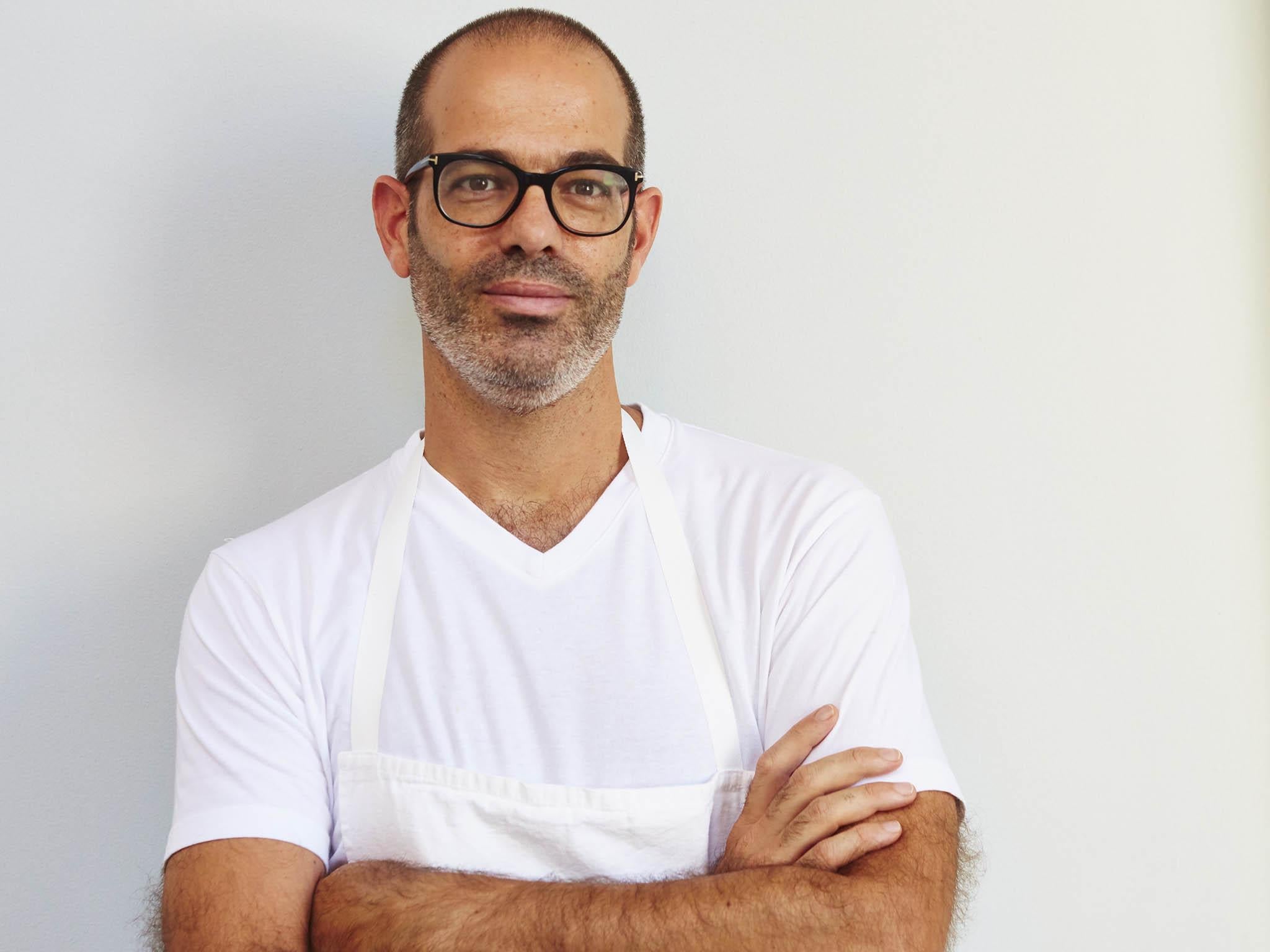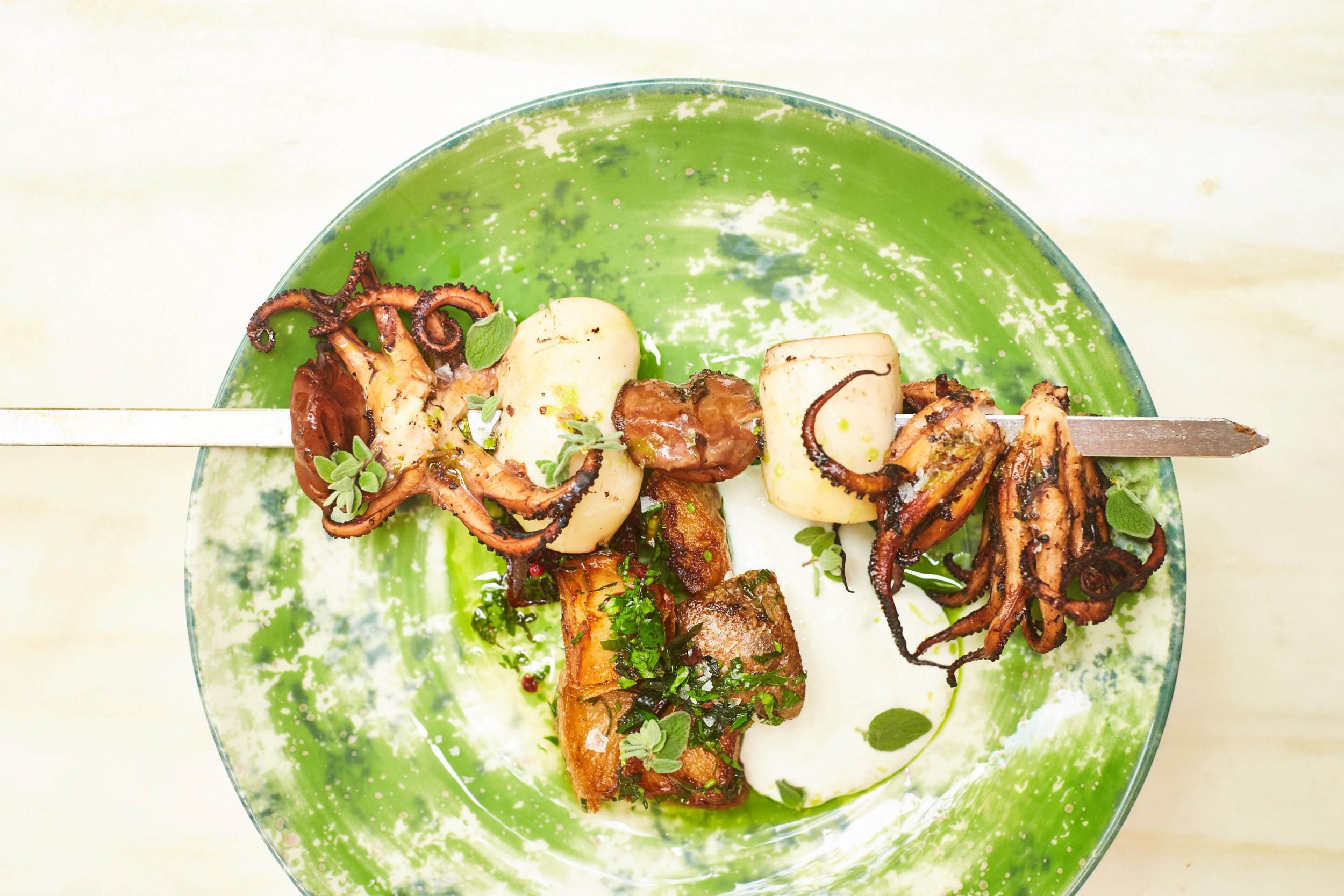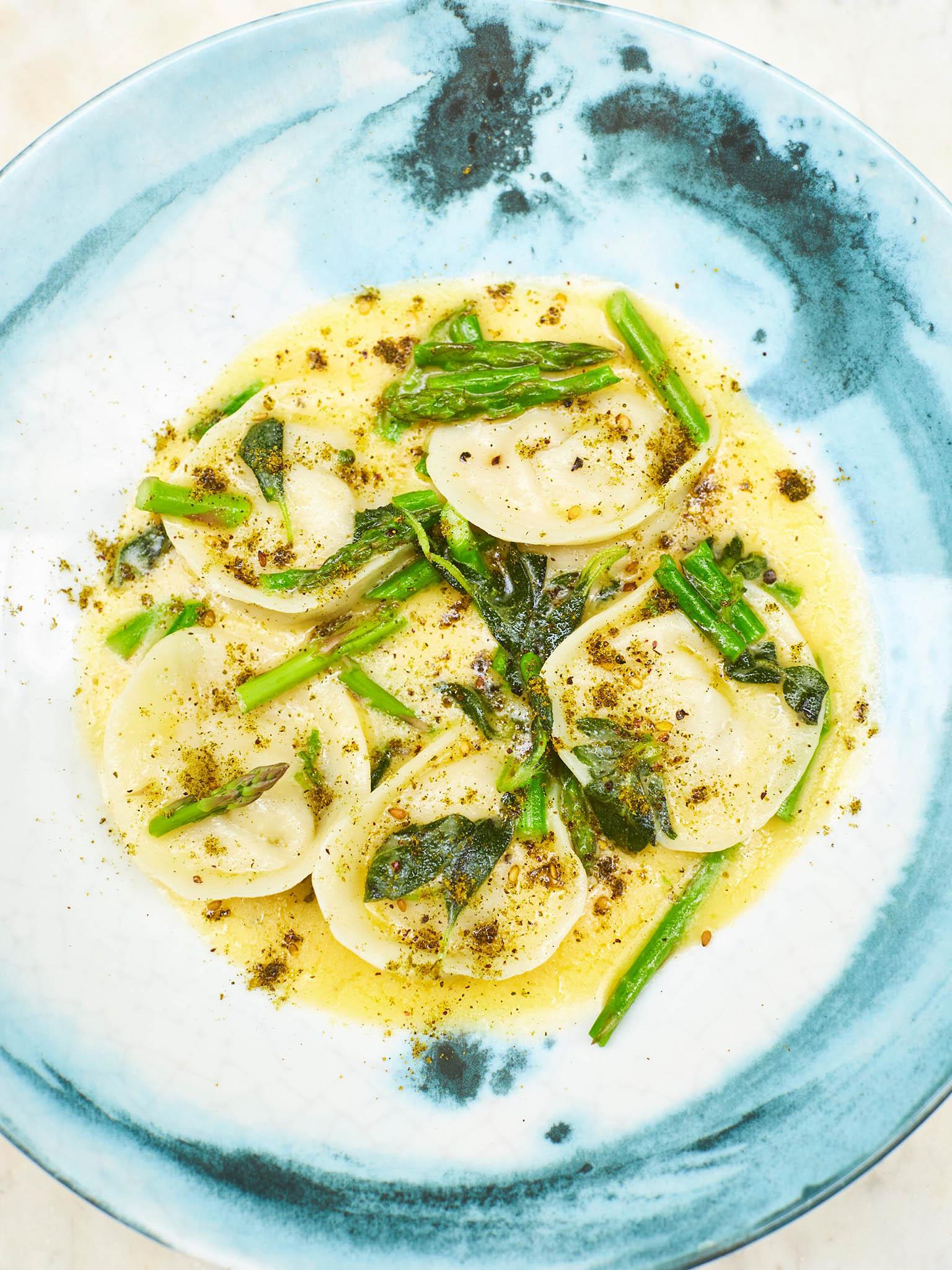Barak Aharoni: the Tel Aviv chef bringing 'honest' food to London
The critically acclaimed Israeli chef is landing his Levantine swirl of flavours in Britain with a five-night residency at Carousel in London’s exclusive Marylebone

You’re the first chef from Tel Aviv to be invited to collaborate with Carousel. What does this mean to you and what will you bring to the table?
It’s a great honour to be the first chef from a Tel Aviv restaurant to be invited to Carousel, especially because London is my favourite culinary city in the world right now.
I hope to bring to the table a fair representation of my approach to cooking, which is an honest unfussy style, and give people a feel of the Tel Aviv-style of dining.
The latter is based around sharing dishes, like I do at home with my family. The way that Carousel is set up on communal tables could not be more perfect for my style of dinner.
You’ve worked in Amsterdam and New York too – what makes Britain so special?
The array of authentic cuisines and contemporary interpretations from literally everywhere in the world. I particularly aim to try the traditional version of everything – I’m not a fusion kind of guy.
Last year, after three years at The Norman, you decided to change the name, the food and the vibe – why?
I have always made a point of listening to feedback from guests, and so many times they were surprised that a restaurant in a hotel in Tel Aviv could be a culinary destination as opposed to a “hotel restaurant”.
As the restaurant gained its own personality, I knew it needed its own name as well and it felt natural to name it Alena.
This was Norman’s wife and just as they stood together in life, as does my restaurant and The Norman hotel.
Why do you think there is move away from Michelin-style fine dining and towards simpler, non-fussy fare?
I think that nowadays people want to have the experience of really good food and great service, but without the fuss of having a 15-course meal after which you don’t really remember what you ate.

However, the perfect example of a Michelin-starred restaurant in London that has achieved a brilliant balance is The Ninth in Fitzrovia by chef Jun Tanaka.
How does the Tel Aviv dining experience compare to the UK?
In terms of atmosphere, the dining scene is a lot noisier and vibrant. People dress more casually. In terms of food, most dishes are for sharing, using fresh seasonal produce.
There are also more outdoor spaces and restaurants are open until late into the night, so people sit and eat smaller dishes over a longer period of time.
In Tel Aviv, nearly everyone is an amateur food expert so the quality has to be high for any kind of restaurant to stay in business.
Do you think the Michelin star system is still important?
It is important for certain chefs, but I don’t choose where I dine or how I cook by this system.
Do you think making simple food is as much of an art than haute cuisine?
Haute cuisine may require certain artistic talent for some dishes and some chefs, but the way I see it and the way I work, I make a point of representing my personality and favourite ingredients in as honest and simplest form as possible.
So, if cooking honestly to bring out the best in every ingredient is an art, then yes.
What (or who) inspires you and your menu?
Mostly seasonality and quality of produce. I take my inspiration from my family, my children and from the people I work with.
How is the rise in “clean” eating, veganism and gluten-free changing the way you structure your menu?
It has a lot of influence because I want as many people as possible to taste my food and enjoy it.
If they have particular needs or preferences, it does not mean that they cannot enjoy really great food. On top of that I love vegetables and olive oil, so it is fun for me to create new dishes.
As a result, I have a large “raw and greens” section on my menu at Alena – not because of the rise in clean eating, but because that’s what I like to cook anyway.
If you were to open a new restaurant, where would it be and why?
As I said before, London is my favourite spot because it has so much to offer chefs in so many ways.
On top of amazing produce and techniques, London has a very specific vibe and atmosphere of diverse people who are after great food and always willing to try new flavours.

You promise to use the absolute best and freshest ingredients available – how will you achieve this in London?
I think it will be quite easy. London can offer almost everything that you want from around the world.
It has great produce coming from across Europe and in the UK there are really good farmers and people that bring the best produce to the city.
How do you make sure your menu is sustainable and affordable?
I always try to put myself in the mind of a diner to ensure that I am getting value for money for the dishes that I am serving.
On top of that I try and use a lot of seasonal vegetables and also work as closely as I can with my farmers and growers to be updated by them all the time and challenge them with my new ideas.
Did you always want to be a chef?
For a while I was studying to be a diplomat but it was always cooking I was passionate about, so I think deep down I did always know.
Was cooking a big part of your family growing up and is that reflected in the food you cook today?
Family dinners and cooking in general was a big thing. Every Thursday we would help my mum cook in the kitchen for Friday night dinner where we all gathered around the table with the family to eat – uncles, grandparents, everyone.
I loved it and I still love my mum’s cooking, especially the Persian food that she makes.
What are you doing to reduce the amount of plastic used in your kitchen?
We aim to use as little plastic as possible and are continuously making a conscious effort to use more environmentally friendly materials.
Barak Aharoni will be hosting his residency at Carousel from 29 May to 2 June
Join our commenting forum
Join thought-provoking conversations, follow other Independent readers and see their replies
Comments
Bookmark popover
Removed from bookmarks